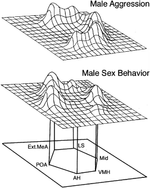Glaucus
Omono
@WestHavenMusician
Look, you can come here and be welcome to talk about bonsai. It was just a bit strange that you said that, quote, "Science has no comprehensive understanding of consciousness." But we do. We made up that word. And we wrote a ton about what we think it is, and is not. Sorry for saying you don't know anything about all these things. You probably do. Just your posts don't show it. And I got annoyed and I apologize for that. You just kept quoting me, questioning what I said, without saying what your meant, or what your counter-example was.
If you were going to say that despite advances in cell biology, neurology, psychology, cognitive sciences, we can't explain how what we call 'consciousness' emerges from neurons, then yes. That's true. But that's not what you said.
And when you say strange things like that and then accuse me of not providing citations, then I get annoyed. I am here to do some forum postings. Not to write scientific papers. If I say something that's wrong, point it out, and I can provide citations, or try finding one and learn I was wrong.
And to @Gabler as well, the entire premise of the paper I linked on plants not possessing consciousness is that plants do not have anything like a brain, and therefore cannot have consciousness.
If you have examples from the scientific literature about examples of consciousness without brains then provide them and we can discuss. But right now, I am having to pre-empt what I think others here are trying to say. The interesting examples of communication in biology that people may confuse for consciousness have all been brought up by me.
To me, a lot of things in nature are really cool exactly because they are not like us humans. Exactly because they don't have consciousness, don't have thoughts, don't have an inner dialogue. Instead, they have many things that we humans don't have. I don't like the idea that we need to convince people that nature is more like us than we think, to get people to care more about nature. Though I might be wrong here and it may be the only way.
Look, you can come here and be welcome to talk about bonsai. It was just a bit strange that you said that, quote, "Science has no comprehensive understanding of consciousness." But we do. We made up that word. And we wrote a ton about what we think it is, and is not. Sorry for saying you don't know anything about all these things. You probably do. Just your posts don't show it. And I got annoyed and I apologize for that. You just kept quoting me, questioning what I said, without saying what your meant, or what your counter-example was.
If you were going to say that despite advances in cell biology, neurology, psychology, cognitive sciences, we can't explain how what we call 'consciousness' emerges from neurons, then yes. That's true. But that's not what you said.
And when you say strange things like that and then accuse me of not providing citations, then I get annoyed. I am here to do some forum postings. Not to write scientific papers. If I say something that's wrong, point it out, and I can provide citations, or try finding one and learn I was wrong.
And to @Gabler as well, the entire premise of the paper I linked on plants not possessing consciousness is that plants do not have anything like a brain, and therefore cannot have consciousness.
If you have examples from the scientific literature about examples of consciousness without brains then provide them and we can discuss. But right now, I am having to pre-empt what I think others here are trying to say. The interesting examples of communication in biology that people may confuse for consciousness have all been brought up by me.
To me, a lot of things in nature are really cool exactly because they are not like us humans. Exactly because they don't have consciousness, don't have thoughts, don't have an inner dialogue. Instead, they have many things that we humans don't have. I don't like the idea that we need to convince people that nature is more like us than we think, to get people to care more about nature. Though I might be wrong here and it may be the only way.


